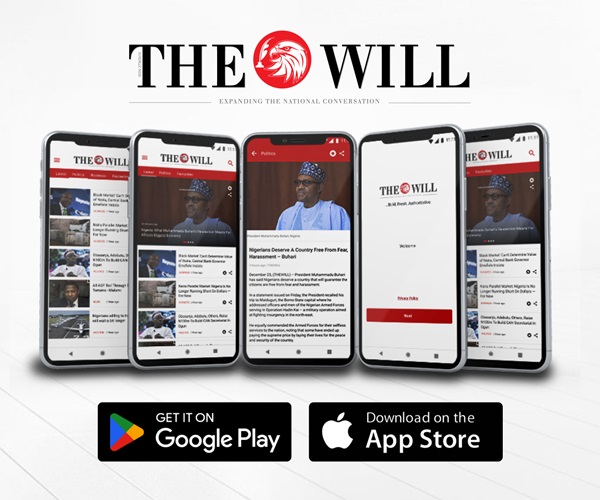February 17, (THEWILL) – Undaunted by a deluge of criticism and negative media reports, the Kogi State Government, under Alhaji Yahaya Bello, as governor, braved a two-day ‘Kogi Economic and Investment Summit’ February 13-14, 2018.
It was the first in the state’s 25 years of existence then, and it came two years after Yahaya Bello’s first election in January 2014. Seven years after the highly celebrated event, the outcome of the summit remains in limbo to date.
Raison detre
The summit was to draw attention to the massive economic opportunities and potentials in the Confluence State that, if tapped, could turn Kogi into the league of Nigeria’s topmost economies, and end its appendage of a civil service state.
However, some critics had argued that the summit might not go beyond the podium rhetoric it generated. They maintained that the character and ‘body language’ of the organisers, socio-economic and political realities of Kogi, showcased the summit more as a package of “political propaganda” than a development-oriented agenda.
For Yahaya Bello, it was time to ignore the unfriendly voices of labour, opposition and critics, “to highlight Kogi State’s economic opportunities and potentials to an international audience comprising policymakers, business leaders, academics and finance professionals to debate what must happen now for the state to overcome its challenges, mitigate the risk in a downturn, and ensure its lofty hopes for future prosperity are met.”
In any case, Kogi was toeing the line of her counterparts at the time. The dwindling oil revenue had put the nation’s economy on edge. Since mid-2014 when prices of oil in the international market slumped, Nigeria’s three tiers of government (federal, states and local) had experienced severe revenue challenges. The imperative of diversifying the economy thus became more compelling than ever as governments embarked on survival strategies to stay afloat. Kogi seemed to have tapped into that unfolding narrative.
Imperative of the initiative
According to Governor Bello at the time, Kogi had worn the appalling appendage of ‘Civil Service State’ since inception and his administration was determined to change the narrative:
“Twenty-five years ago, Kogi State was created and ever since then, it is often referred to as a civil service state. Under this administration, we will no longer take that narrative because Kogi state is full of potential,” elated Nigeria’s youngest governor (at 41) declared.
Sounding confident about the vision behind the summit, Bello rhetorically asked, “How can the government deliver on its bold promises – from increasing ease of doing business to making it easier for firms to raise capital—to improve the climate for foreign investment?”
“Our geographical location, natural water bodies, variable vast and arable land, human capital and solid minerals are great potentials.
“I refer to Kogi State as the solid mineral capital of Africa.
“All these potentials will remain untapped so long as we continue to see Kogi State as a civil service state and nothing is done,” the young governor said at the opening ceremony in Lokoja, as if preempting Vice President Yemi Osinbajo, who represented President Muhammadu Buhari at the occasion.
Come golden voices
Osinbajo said, “This summit is both timely and strategic not only to draw attention to the confluence of opportunities in Kogi State but also to reinvigorate and inspire the people of Kogi; as you are reminded of your prospect both as a state and what it has to offer and the possibilities that are so unique to this state.
“A fertile arable land that makes Kogi the largest producer of cashew, potential major rice producer, a respected fishing community among others as well as a bed of some of the most prolific solid minerals including coal, limestone, iron ore and tin makes undoubtedly, the confluence state.”
Then Minister of Solid Minerals, Kayode Fayemi, urged Kogi to explore partnership opportunities for immediate exploration of the huge mineral deposits in the area. “There are opportunities for Kogi State to partner with private sector players to exploit the vast value chain of mining in the state. Kogi state, in partnership with private sector entities can invest in beneficiation plants that encourage the expansion of mining activities within the state, thus creating jobs and economic opportunities for indigenes.”
The Flipside
Divergent opinions were raised then concerning the two-day summit that attracted the Vice President, state governors, top government officials, eminent religious and traditional rulers, captains of industry and members of the diplomatic corps, among others.
The critics accused the state governor of hypocrisy. They emphasised that he was pursuing “anti-people” initiatives that, contrary to his pronouncements, did not show convincing evidence that he walked his talk.
Throwing punches at Bello, a columnist in The Nation newspaper, Idowu Akinlotan, wrote on February 18, 2018, under the topic ‘Missing the point in Kogi’, “It is obvious that the idea of an economic summit is an abstraction to him, a distant idea with no ties to either his own vacant mind or economic and social reality.
“The state is in decay, its people groaning in abject poverty and government-inflicted pains, and he has engineered an oppressive air that envelopes the state.”
But, the Director-General, Nigerian Association of Chambers of Commerce, Industry, Mines and Agriculture (NACCIMA), Kebbi State, Malami Kebbi Guruza, noted in a comment then that the success of such economic development initiatives is tied to the goodwill of the government of the day.
“The success of the summit will depend on the goodwill that the people enjoy from the government of the day. When salaries are not paid, it affects the commercial activities of the state; even the market women are affected. The workers, who will implement the policies, are affected”.
The Chairman, Kogi Chapter, Nigeria Labour Congress (NLC), Comrade Edoka Onuh, at the time said that Labour was not involved in the investment summit, a pointer to possible hurdles towards achieving the objectives of the exercise.
“Government needs the civil servants in implementing the policies and programmes of the investment summit, even if it is going to be private-sector driven. If the government has commitment to the summit, it must use the civil servants to drive it.
“But in a situation where many of the civil servants have either been sacked or prematurely retired, how will the government go about it? Labour was not part of the summit; we cannot say if the government has the capacity to drive the initiative or not”, Edoka was quoted as saying.
A SME clinic
However, the then Chief Press Secretary (CPS) to Governor Yahaya Bello, Mrs. Petra Akinti-Onyegbule, said that government would launch a small and medium enterprise (SME) clinic alongside the summit to demonstrate its determination to take the project beyond podium rhetoric and make it beneficial to the people, irrespective of the numerous challenges and oppositions. This SME launch was performed by Vice President Osinbajo.
Kernel of the matter
The question being asked then was, after this podium rhetoric, what next? How would the vision of the summit and the efforts invested in the project translate into concrete action to deliver on the seven-point objectives of the summit?
Is Kogi ready to move out of its undesirable orbit of a ‘civil service state’ – an appendage that conveys laziness, cluelessness, lethargy, lack of creativity, being allergic to entrepreneurship and not in a hurry to seek the way to the next level? Perhaps, the questions raised in the summit document offered the answers:
“How can Kogi State navigate these complex policy challenges successfully to ensure an economic revival? How can businesses ride out the current slump, mitigate the risks and impact on the bottom line? What are the consequences for regional cooperation and what, if anything, can foreign investors do to help?
“What do these new circumstances mean for foreign investors engaged in ongoing or planned projects in the state, and where do the key opportunities lie? How can the government deliver on its bold promises – from increasing ease of doing business to making it easier for firms to raise capital — to improve the climate for foreign investment?”
Were these mere words meant to fill the blank spaces?
Ways out
Many economic experts had urged the state to develop a well-articulated human capital development plan, preferably in a 10-year tenure, to determine what it required.
What are the mineral deposits? In what commercial quantity are they? What is required for their exploration? What is needed for development? Who will do the marketing? What about the processing? Who is monitoring the environmental factors as well as tax and other regulatory policies guiding business in the country?
Also, it is imperative to revisit the status of the technical colleges and other skill acquisition centres. There should be a total- man concept in the human capital development strategy of the state. This is to ensure that everyone is relevant and contributing.
None of these happened in Kogi under Yahaya Bello.
More worries
Vice President Osinbajo had also observed: “The state is also the undisputed gateway between the north and south. This state stands in a strategic position making it the only state that shares boundaries with ten other states including Abuja”. But Kogi was more in the news for negative reasons associated with crime and road accidents.
The Ooni of Ife, Oba Adeyeye Ogunwusi, who was among the dignitaries that graced the occasion, emphasised at the summit:
“We make that mistake a lot in this country. We have versatile youths who can manufacture equipment locally but we will focus on how to discourage and pull them down. Why can’t we urge the government to set up a research and development unit so they can be schooled?”
Exercise in mirage
Over seven years after the Kogi Economic and Investment Summit that dominated the waves and pages of the electronic and print media, there is little to show that Gov. Bello was sincere about the initiative, or determined to pursue the grandiose project beyond rostrum rhetoric and loud ovation. The opening ceremony was streamed live on major national televisions at a huge cost.
Gov. Bello’s re-election in November 2019, over a year after the summit, was judged one of the worst in Nigeria’s electoral history by domestic and international observers.
The election was least in transparency, unmatched in irregularities, monumental in corruption, and absolute in brutality. Widespread violence, intimidation and bloodbath held sway. Political thugs set Peoples Democratic Party (PDP) women leader, Solome Abuh, ablaze, with her household — a heinous crime that eternally dented the image of Bello’s 8-year administration.
Ex-governor Yahaya Bello is now facing the authorities for mindless plundering of the state he governed for 8 consecutive years, with bleeding memories of an elaborate Economic and Investment Summit that served the opposite.
Sam Diala is a Bloomberg Certified Financial Journalist with over a decade of experience in reporting Business and Economy. He is Business Editor at THEWILL Newspaper, and believes that work, not wishes, creates wealth.






